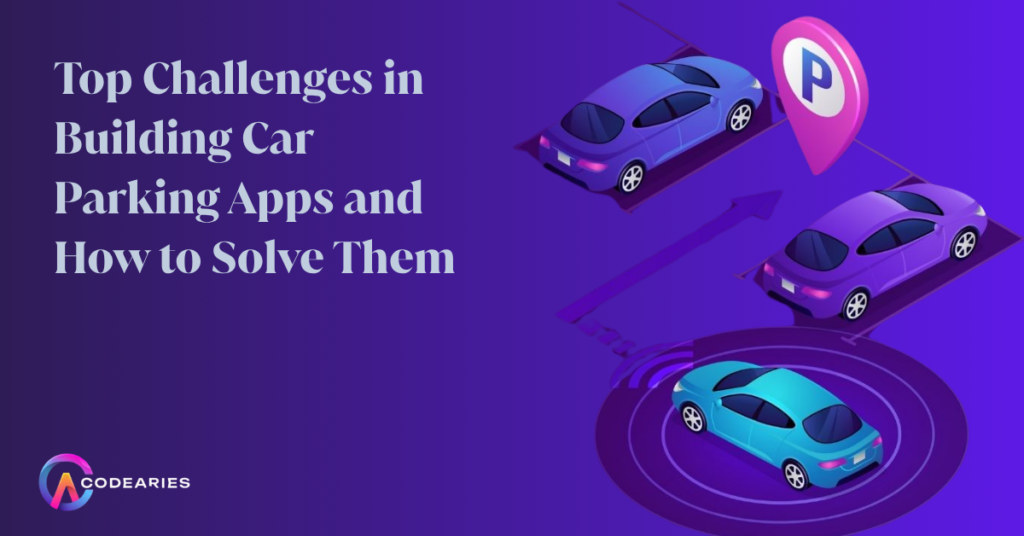Top Challenges in Building Car Parking Apps and How to Solve Them
Read 4 MinUrban centers worldwide face increasing challenges related to parking, including congestion, inefficiency, and user frustration. Car parking apps have emerged as valuable tools, helping customers find, reserve, and pay for spots easily. However, developing a successful car parking app comes with technical, operational, and user experience hurdles. As cities become smarter and parking demand rises, the apps that excel are those created with a strong understanding of these challenges and strategies to address them. In this blog, we will look at the main issues in car parking app development and offer practical solutions. Learn how Codearies supports enterprise grade app projects that enhance user satisfaction and optimize parking resources. 1. Real Time Parking Space Availability The Challenge: Maintaining accurate and timely spot availability data is essential yet complex. Sensors may fail, integration delays can occur, and manual updates might be inconsistent. Incorrect information leads to user frustration and inefficiency. Solutions: 2. Seamless and Secure Payments The Challenge: Users want easy payments via cards, wallets, or subscription models. Managing various payment methods securely while meeting regulatory requirements is not easy. Solutions: 3. Accurate Location Tracking and Navigation The Challenge: For drivers, efficiently finding and reaching their reserved spot depends on precise geolocation and routing that considers obstacles like construction and traffic. Solutions: 4. User Friendly Design & Onboarding The Challenge: Apps that are cluttered with features or complicated workflows can drive away casual users. A simple, intuitive design is critical for adoption. Solutions: 5. Integration with Existing Infrastructure The Challenge: Parking operators might use outdated hardware or software that is incompatible or undocumented, making integration harder. Solutions: 6. Data Privacy and Security The Challenge: Apps collect sensitive personal, payment, and location data, which requires strong security and compliance with local laws like GDPR or CCPA. Solutions: 7. Scalability and Performance The Challenge: Apps must handle surges, commuter peaks, events, without slowdowns or crashes. Solutions: How Codearies Elevates Car Parking Apps At Codearies, we focus on creating strong, scalable, and user friendly car parking apps that tackle these challenges directly. Our Strengths: Partner with Codearies to create innovative parking solutions that satisfy drivers, optimize resources, and support smarter cities. Frequently Asked Questions How do you ensure real time parking data accuracy? We combine IoT sensors, user crowdsourcing, and AI prediction to keep availability data accurate and reliable. What payment methods can you integrate? Our platform supports global standards, including cards, wallets, UPI, subscriptions, and emerging options, with built in PCI compliance. Can you integrate with existing parking hardware/software? Yes, we develop custom middleware and APIs to connect smoothly with various operator systems. How do you approach app user experience design? We prioritize simplicity, transparency, accessibility, and contextual feature exposure to ensure high adoption and satisfaction. What is your typical delivery timeline for a parking app? Depending on features and integrations, projects typically take 4 to 8 months for the MVP, with ongoing support for scaling. For business inquiries or further information, please contact us at contact@codearies.com info@codearies.com




